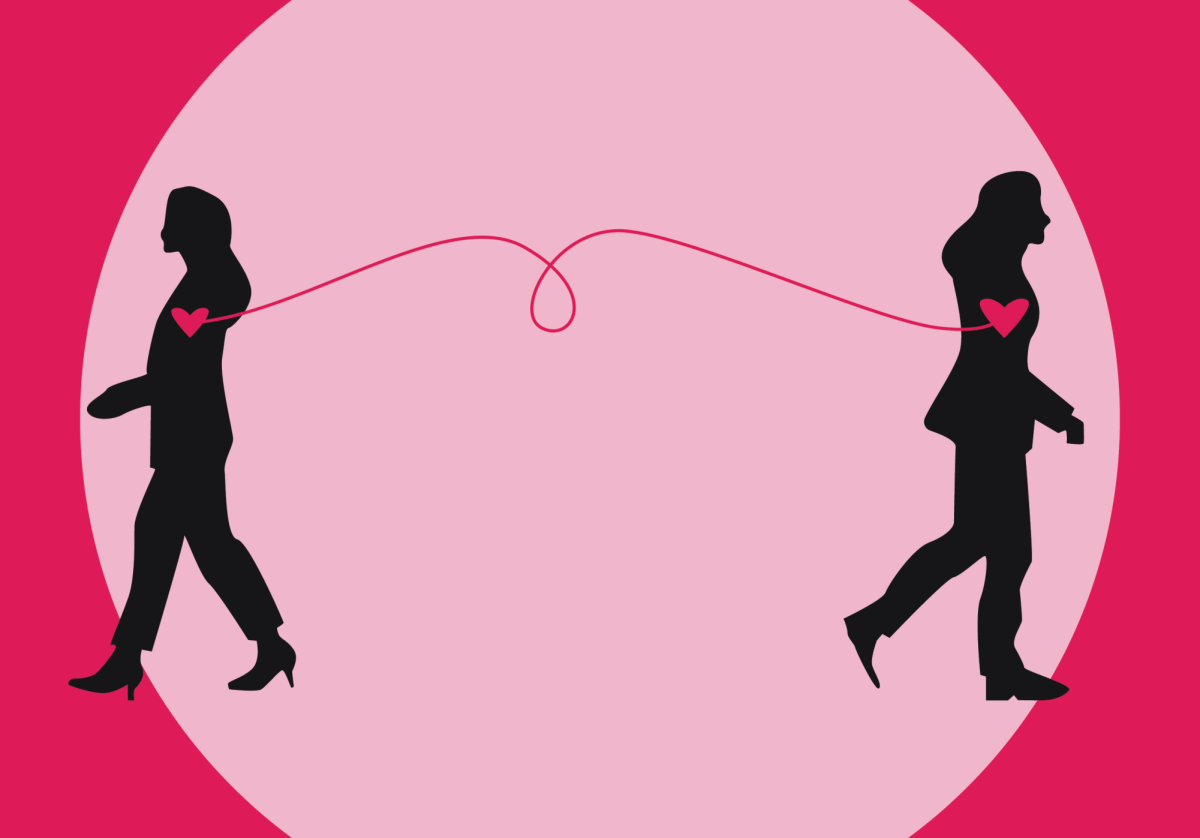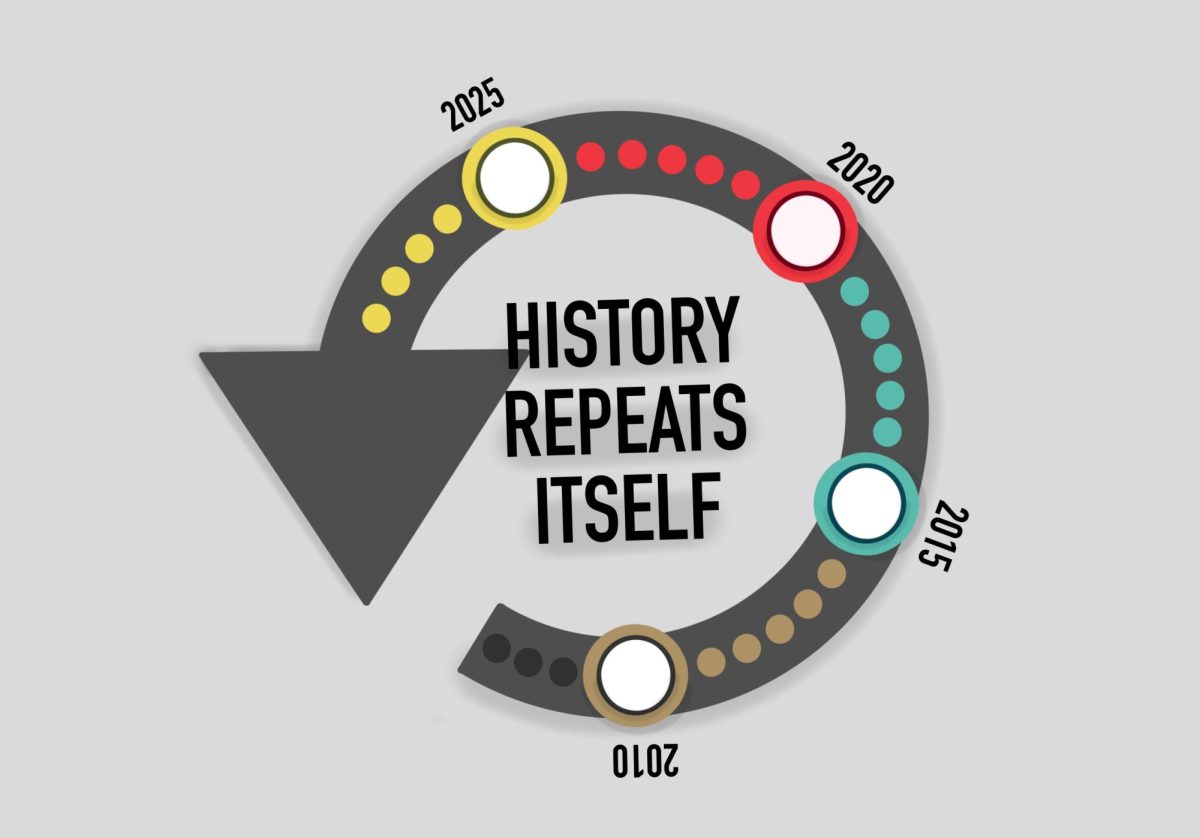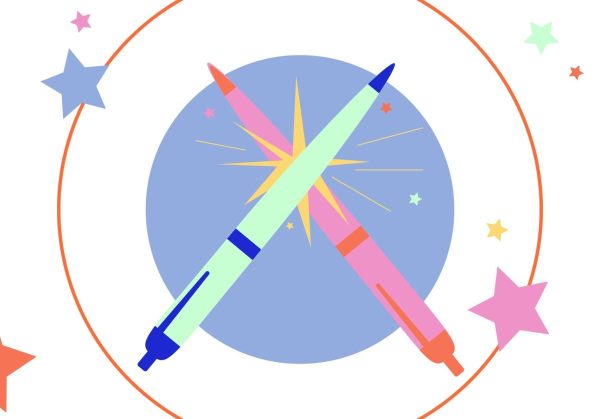Since childhood, we’ve been susceptible to this idea: we all eventually find our person. The “one.” Our soulmate. Movies, TV, books and media in general have all left us with the impression of what it should look like once you have finally found your soulmate.
You both lock eyes in the midst of a crowded room — potential suitors fill the floor but it’s only the presence of this one person that is captivating. Their gaze tempts you and you keep it because you’re curious to know more. You’re pulled to them as if some otherworldly force is propelling you to reach them and there’s nothing else in the world that matters more at that moment. It was written into the structure of the universe. You were meant to find each other.
Frankly, this idea seems overrated.
The theory of soulmates has infatuated the great minds of philosophers and writers for generations, all of whom hold varying perspectives rooted in the same idea.
Aristotle expressed that a friendship is fundamentally “one soul in two bodies.”
Plato, with a similar yet more descriptive idea, told the story it was the Greek god Zeus who split the once androgynous humans into two separate counterparts of man and woman who all longed to find their other half to fuse back into one body and soul.
In English literature, Christopher Marlowe wrote “It lies not in our power to love or hate, For will in us is overruled by fate.” Marlowe differed in his explanation from the Greek philosophers but still contained the underlying idea of a soulmate, essentially suggesting that it is not our choice who we love but destiny’s.
These theories and ideas have strongly influenced people into what a relationship may mean to them, but could this ultimately do more harm than good? Jake Ryan — known locally as J. Ryan — tarot reader and life coach for over 21 years, certainly believes so.
“Over the years, I saw people experiencing more pain and trauma with these ideas of soulmates that it got me to realize we probably don’t have something like this happening,” Ryan said. “We would be seeing more success with this. People wouldn’t be coming to readers or other medical professionals in real psychological distress.”
For people to strongly believe in this concept that we all have a twin flame — in which, the day we meet them we will be certain they are the one — is to put themselves in a place where they are at risk of completely detaching from their belief in love at all. It’s a death sentence for a pure heart.
“It leads to this narrative that, by nature, you are incomplete,” Ryan said. “I think that’s a sort of damaging psychological rhetoric to give to a person, especially someone who may have experienced isolation or blows to their self-esteem growing up.”
In today’s world, the original concept of soulmates has worn out. It’s frayed away from the new generation’s outlook on relationships, prompting a modern and unprecedented idea of soulmates.
The desire to build and maintain a relationship has started to decline among the young adults of today. Instead, many opt for exclusivity in a relationship without the use of labels in case something “better” comes along. Hookup culture takes a place at the table thanks to the digital realm of dating. The somewhat “traditional” track of life that included getting married and starting a family has shifted to a more unorthodox route from other generations.
Why do we no longer conform to those old-fashioned notions? What did the previous generations have that possibly made it easier to believe in the concept of soulmates?
“Spaces for the community to share ideas and connections,” Ryan said.
In this day and age, social anxiety takes over and more people prefer to connect through mediated communication. People learn about each other through a phone before they begin to connect in each other’s presence.
“If you get a lot of people in one room who all believe in soulmates, chances are you’re going to find somebody who has a pretty similar line up of values as you and you’re gonna go, ‘Well, obviously this is my soulmate,’” Ryan said. “But if we’re all kind of spread out and cut off from each other, that might be harder.”
So, if we are not to believe in this concept of soulmates, what are we left to believe in?
It is not some mystical connection but a concrete one filled with challenges and appreciation. A soulmate is someone we have built and settled a relationship with, romantic or platonic. It requires carrying on when the going gets tough and not giving up at the first sign of differences.
A soulmate does not necessarily come as one person, but as multiple people who can arrive at different points in our lives. We decide our soulmate, not the universe, and definitely not some old, Greek man.
Destiny does not preordain our soulmate, we do.














